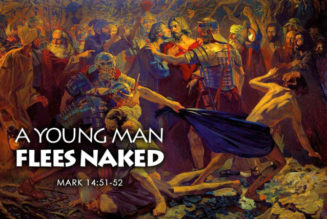4th Sunday of Lent
By Fr. Victor Feltes
What do the two brothers in Jesus’ parable have in common? Both of them are loved by the same generous and merciful father, but neither one believes it.
In the beginning of the story, the younger son says to his father, “Give me the share of your estate that should come to me.” So the father divides the property between him and his brother. According to God’s law in the Book of Deuteronomy, a firstborn son got a double-portion of the inheritance. So in our story when dad divided the property between them, the elder son would receive two-thirds of the estate while the younger son took a third. After a few days, the younger son collects all his belongings, likely converting them into cash, and sets off for a distant, foreign country.
To be prodigal with one’s wealth means to spend it freely and recklessly. Everyone knows the younger son by this title for squandering his fortune in sinful and wasteful ways. After he spends it all, a famine strikes and he takes an area job as a farmhand. He’s now working on a farm with pigs, an often filthy animal which is also ritually-unclean for Jews. The younger son is starving, dying from hunger, and he is feeding swine. He is now so degraded that he longs to eat the pigs’ food, but nobody gives him any. This story’s original Greek text indicates he fed the pigs the pods which grow on carob trees. Carob pods have been used to fatten pigs and as a lower-class food from ancient times to present day. Though carob pods are tough, and hard on the teeth of those who eat them, they do contain a sweet, honey-like taste inside.
The Prodigal Son then sits down and thinks: ‘Wouldn’t I be much better off as one of my father’s hired workers? They always have more than enough food! I don’t deserve to be called his son. He surely despises me and feels like I’m dead to him. But there’s always lots of work to be done on the farm; maybe he’ll have me back as a laborer.’ So he gets up and goes back to his father. Imagine that son’s surprise when his dad sees him in the distance, runs to him, and embraces him (literally “falling upon his [son’s] neck”). The father kisses, clothes, and restores him, saying “let us celebrate with a feast, because this son of mine was dead, and has come to life again! He was lost, and has been found!” Despite everything, his father has never stopped loving him.
The Parable of the Prodigal Son is also the story of the older son. This son has been obediently serving his father for years. He’s coming back to the house from working hard in the field when he learns of his brother’s return. His father is throwing a party with music, dancing, and a big steak dinner, but the older son becomes angry and refuses to go in. His father comes pleading to him, but he replies: “Look, all these years I served you and not once did I disobey your orders; yet you never gave me even a young goat to feast on with my friends! But when your son returns who swallowed up your property with prostitutes, for him you slaughter the fattened calf!” Why is the older brother angry and jealous? Because he doesn’t believe his father loves him. ‘Why do you love my shameful sibling more than me? You never even gave me a young goat to feast on with my friends!’ (The elder son apparently never asked for this gift, for who could imagine his merciful father refusing him?)
The father replies, “My son, you are here with me always; everything I have is yours.” What his father says is true; everything on the family estate is already the elder son’s by the inheritance divided and bestowed at the start of the story. “But now,” his father explains, “we must celebrate and rejoice.” The father wants his treasured sons to be reconciled and added to each other’s inheritance from him. Likewise, Jesus wishes the Pharisees and scribes could be happy that their estranged brothers, the tax collectors and sinners, are now returning home repentant.
Both of the brothers in Jesus’ parable disbelieved their generous, merciful father loved them. You might feel that way, too. Maybe you’ve been unfaithful and believe, “God can’t love me because I’m too sinful.” If a Jewish man can longingly crave the hard-to-eat food of swine, God can love whatever sweet goodness there is in you. Or maybe you’ve been faithful to God through years of trial yet think, “God clearly doesn’t love me, because he doesn’t bless me.” Laboring in our Father’s vineyard can be difficult, but “whoever asks, receives.” Jesus says, “Behold, the kingdom of God is among you,” and “Behold, I am with you always.” God our Father tells us, “You are with me always, and everything I have is yours.” Perhaps you need to repent and return to our Father in the Sacrament of Confession, leaving your sins behind. Or perhaps you need to let go of your bitterness, realizing how truly blessed you are within our Father’s house. But you should definitely believe and accept this: that our loving Father loves you.
Join Our Telegram Group : Salvation & Prosperity










